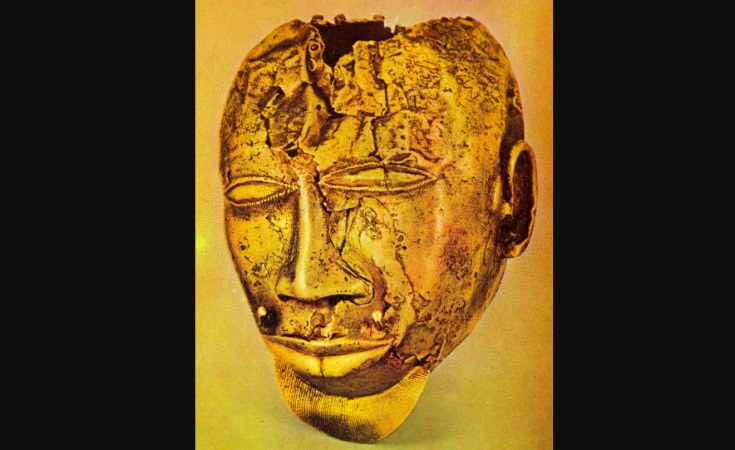The UK is set to "loan back" a selection of gold and silver artefacts once worn by members of Asante royalty that were taken from Ghana some 150 years ago. The precious regalia will be displayed in the city of Kumasi, once the capital of the powerful Asante Empire.
More than 30 pieces will be loaned back to their place of origin, two of the UK's biggest museums announced on Thursday.
The Victoria and Albert Museum (V&A) will lend 17 items, while the British Museum will send 15 pieces - with ornaments, jewellery and talismans among the treasures.
They will be loaned to the Manhyia Palace Museum in Kumasi on a three-year basis, with an option to extend for the same amount of time.
A joint statement by all three museums acknowledges that the objects seized had "cultural, historical and spiritual significance to the Asante people".
The seizures are also "indelibly linked to British colonial history in West Africa, with many of them looted from Kumasi during the Anglo-Asante wars of the 19th century".
Just a sample of the dazzlingly crafted gold regalia of the court of the Asantehene (Asante king) in Ghana.These items are of deeply significant cultural, historical, and spiritual significance to the Asante people. They are also indelibly linked to British colonial history,... pic.twitter.com/sNFzfte0Gk-- V&A (@V_and_A) January 25, 2024
The loan was negotiated not between governments but by the museums and Otumfo Osei Tutu II, the current Asante king known as the Asantehene.
The items will go on display to celebrate the Asantehene's silver jubilee later this year.
'Crown Jewels'
Tristram Hunt, director of the V&A, said the items taken from the court of the Asante royals were the equivalent of the UK's Crown Jewels.
Many are crafted in gold, the source of Asante kings' wealth and a symbol in their culture of the sun, life force and royal authority.
The objects were mostly taken during wars between the British and Asante empires, including a sword of state, a gold peace pipe, a ceremonial headdress worn at coronations, and gold "soul washers' badges" worn by royal attendants charged with reinvigorating the king.
Speaking to the BBC, Hunt said that when it came to objects acquired through war, "we have a responsibility to the countries of origin to think about how we can share those more fairly today".
"It doesn't seem to me that all of our museums will fall down if we build up these kind of partnerships and exchanges," he added.
Hunt stressed the items had not been permanently returned to Ghana, saying the new cultural partnership "is not restitution by the back door".
Post-colonial cultural battle
Under a UK heritage law, national museums including the V&A and the British Museum are not permitted to give away objects in their collections, including returning them to their country of origin.
The Asante ruler had sent a request to the British Museum to return gold items held in their collection to his country last year.
Many European museums are facing pressure to return artefacts and artworks acquired during colonial conquests.
Nigeria has formally asked the British Museum to return 900 Benin bronzes that were seized by the British when they captured Benin City in 1897 and are now spread between museums in the UK, France and Germany.
Benin and Egypt have already received back artefacts formerly exhibited in Europe.
And Ethiopia wants the British Museum to return a number of items taken from a village in the north of the country, formerly known as Maqdala, during British military action in 1868.


